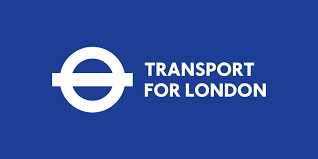TFL Online Practice Test
Are you ready to embark on a rewarding career with Transport for London (TFL)? Landing a job with this prestigious organization can be a dream come true for many. To secure a position as a TFL graduate, you must first tackle the Graduate Practice Aptitude Test Pack in 2024. In this blog post, we will delve into what you need to know about the TFL Graduate Practice Aptitude Test Pack and provide you with essential tips and resources to ace it.
Understanding the TFL Graduate Practice Aptitude Test Pack
The TFL Graduate Practice Aptitude Test Pack is a crucial step in the application process for aspiring graduates. It is designed to assess your skills, knowledge, and suitability for the specific role you are applying for within TFL. The test pack typically consists of various aptitude tests, which may include numerical reasoning, verbal reasoning, and situational judgment tests.
- Numerical Reasoning Test: This test evaluates your ability to understand and work with numerical data. You’ll be presented with graphs, charts, and tables, and you’ll need to answer questions based on the information provided.
- Verbal Reasoning Test: This assesses your reading comprehension and critical thinking skills. You’ll be given passages of text and asked to answer questions about the information contained within them.
- Situational Judgment Test: This test measures your ability to make sound decisions in work-related scenarios. You’ll be presented with hypothetical situations and asked to choose the most appropriate course of action.
Preparing for Success
Now that you understand the components of the TFL Graduate Practice Aptitude Test Pack, let’s explore how you can prepare effectively for these assessments:
- Practice Regularly: Consistent practice is the key to success. Utilize practice test materials, which are often available on TFL’s official website or through reputable test preparation companies. These practice tests will help you become familiar with the format and types of questions you can expect.
- Time Management: Work on your time management skills during practice. Many aptitude tests are time-bound, so practicing under timed conditions will help you get accustomed to the pressure and improve your speed.
- Brush Up on Basic Skills: Make sure your fundamental skills in mathematics, English, and critical thinking are solid. This will provide a strong foundation for tackling the more complex questions.
- Seek Guidance: Consider seeking guidance from current or former TFL employees who have gone through the application process. They can provide valuable insights and tips based on their experiences.
- Stay Informed: Stay up-to-date with news related to TFL and the transportation industry. This knowledge can be beneficial, especially for situational judgment tests, where your decision-making may be influenced by industry-specific factors.
- Stay Calm and Confident: On the day of the test, remember to stay calm and confident. Proper rest and a positive mindset can go a long way in helping you perform your best.
About TFL company
TFL is an integrated transport authority responsible for meeting Mayor Sadiq Khan’s strategy and commitments on transport in London. TFL runs the day-to-day operation of the Capital’s public transport network and manage London’s main roads. TFL offer their graduate programmes in a range of exciting business areas.
TFL Aptitude tests formats; What to expect:
TFL mostly uses CEB/Gartner (SHL) style tests for its candidate selection. The sections on the assessments may include any of the following test sections, depending on the role that you applied to and also the country you are applying from:
- Numerical Reasoning
- Verbal Reasoning
- Inductive Reasoning
- Reading Comprehension
- Deductive Reasoning
- Situational Judgement Test
- Error / Data Checking Test
- Presentation
- Interview
- Personality Test
Sample TFL Graduate Practice Tests and Worked solutions
Light is made up of electromagnetic waves. These vary in length and it is these differences that we perceive as different colors. White light has all the wavelengths of the light spectrum mixed up together. An object looks colored because light falls on it and it reflects only certain parts of the spectrum. The rest of the spectrum is absorbed by the object. An object that looks white reflects all the light that falls on it. An object that looks red reflects the red part of the spectrum and absorbs the rest. Our eyes detect these different reflected waves and we see them as different colors.
Question 1.
Without colors, we would consider the world a dull and less beautiful place.
A. True
B. False
C. Cannot tell
Answer: C
Question 2.
White light is an amalgam of all the wavelengths of light.
A. True
B. False
C. Cannot tell
Answer: A
Question 3.
The passage states that an object that looks blue absorbs all but the blue wavelengths of light.
A. True
B. False
C. Cannot tell
Answer: B
Question 4.
The color we perceive an object to be is determined by the electromagnetic waves that it absorbs or reflects.
A. True
B. False
C. Cannot tell
Answer: A
Question 5.
White paint reflects more light than red paint.
A. True
B. False
C. Cannot tell
Answer: A

